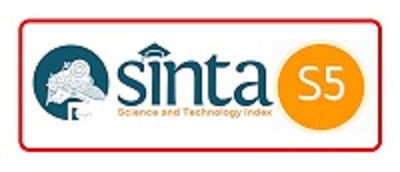Pemberdayaan UMKM Dalam Menstabilkan Perekonomian Daerah Rejang Lebong di Tengah Pandemi Covid-19
DOI:
https://doi.org/10.29240/disclosure.v2i2.5716Keywords:
Covid-19, Empowerment UMKM, Stabilizing the EconomyAbstract
This paper aims to describe how efforts are made to empower Micro, Small, and Medium Enterprises (UMKM) in stabilizing the economy in the midst of the Covid-19 pandemic. The data used is sourced from data from the official website of several agencies or institutions that are relevant to this research. The results show that although the Covid-19 pandemic has created problems for UMKM and cooperatives, on the other hand, opportunities have also emerged. UMKM actors and cooperatives can take advantage of information and communication technology so that creativity and innovation emerge among UMKM in maintaining their business which has an impact on the optimal use of local or regional products. Local governments seek to empower UMKM in meeting community needs through skills development programs and funding assistance. The UMKM empowerment programs in the midst of the Covid-19 pandemic include changing business models from conventional to digitalization, designing social and digital strategies, developing and empowering UMKM resources optimally, and economic recovery programs in the form of capital assistance from the government.
Downloads
References
Anoraga, Panji. 2002. Kewirausahaan dan Usaha Kecil. Jakarta : Rineka Cipta
Arsyad, Lincolin. 1999. Ekonomi Pembangunanâ€.Yogyakarta : BPFE UGM
Berry, A., Rodriquez, E. & Sandeem, H. 2001. Small and medium enterprises dynamics in Indonesia. Bulletin of Indonesian Economic Studies,37(3),363-384.
Boediono. 1999. Teori Pertumbuhan Ekonomi. Yogyakarta: BPFE UGM.
Dewi, Mega Arisia. 2020. Pelatihan Etika Bisnis dan Pembukuan Sederhana Pelaku UMKM di Kelurahan Klampis Ngasem Surabaya. Jurnal Pangabdhi. 6(2), 49-52
Marlina, Produk Domestik Regional Bruto Kabupaten Rejang Lebong Menurut Lapangan Usaha 2016-2020, tahun 2021. Badan Pusat Statistik Kabupaten Rejang Lebong
Nuari, Ahmad Raihan. 2017. Pentingnya Usaha Kecil Menengah (UKM) untuk Mendorong Pertumbuhan Ekonomi di Indonesia, Osf.io
Polman W. 2000. Policies and Institutional Infrastructure in The Promotion of Rural - Based Small Scale Industries. Tokyo (JP) Asian Produvtivity Organization.
Putra, Adnan Husada. 2016. Peran UMKM dalam Pembangunan dan Kesejahteraan Masyarakat Kabupaten Blora. Jurnal Analisa Sosiologi, 5(2): 40-52
Oktoyoki, Hefri. 2019. Strategi Pengembangan Usaha Mikro Kecil Menengah (UMKM) Agribisnis Berdaya Saing di Kabupaten Rejang Lebong, Jurnal Mapetari, 4(1), 21-32
Rasalawati Ade. 2001. Pengaruh Perkembangan Usaha Kecil Menengah Terhadap pertumbuhan ekonomi Pada Sektor UKM Indonesia. Skripsi pada Fakultas Ekonomi dan Bisnis, Universitas Negeri Syarifhidayatullah, Jakarta
Rifa’I, Bachtiar. 2013. Efektivitas Pemberdayaan Usaha Mikro Kecil dan Menengah (UMKM) Krupuk Ikan dalam Program Pengembangan Labsite Pemberdayaan Masyarakat Desa Kedung Rejo Kecamatan Jabon Kabupaten Sidoarjo, Kebijakan dan Manajemen Publik, 1(1), 130-136
Soetjipto, HM. Noer. 2020. ketahanan UMKM Jawa Timur Melintasi Pandemi Covid-19, 2020. Yogyakarta: K-Media
Sudaryanto.2013. Strategi Pemberdayaan UMKM Menghadapi Pasar Bebas Asean. Pusat Kebijakan Ekonomi Makro, Badan Kebijakan Fiskal, Jakarta
Sukirno, Sadono, 1985, Ekonomi Pembangunan : Proses, Masalah dan Dasar Kebijakan, Jakarta: LPFE UI
Sumarni, Yenti. 2020. Pandemi Covid-19: Tantangan Ekonomi dan Bisnis. Al-Intaj, 6(2), 46-58
Wahyunti, Sri. 2020. Peran Strategis UMKM dalam Menopang Perekonomian Indonesia di Tengah Pandemi Covid-19. Jurnal Ekonomi Syariah, 3(2), 280-302
Undang-Undang Nomor 20 Tahun 2008 tentang Usaha Mikro, Kecil, dan menengah
Downloads
Published
How to Cite
Issue
Section
Citation Check
License
Copyright (c) 2022 Ranaswijaya Ranaswijaya

This work is licensed under a Creative Commons Attribution-ShareAlike 4.0 International License.
Authors who publish with this journal agree to the following terms:
- Authors retain copyright and grant the journal right of first publication with the work simultaneously licensed under a Creative Commons Attribution License (CC BY-NC-SA 4.0) that allows others to share the work with an acknowledgment of the work's authorship and initial publication in this journal.
- Authors are able to enter into separate, additional contractual arrangements for the non-exclusive distribution of the journal's published version of the work (e.g., post it to an institutional repository or publish it in a book), with an acknowledgment of its initial publication in this journal.
- Authors are permitted and encouraged to post their work online (e.g., in institutional repositories or on their website) prior to and during the submission process, as it can lead to productive exchanges, as well as earlier and greater citation of published work (See The Effect of Open Access).














